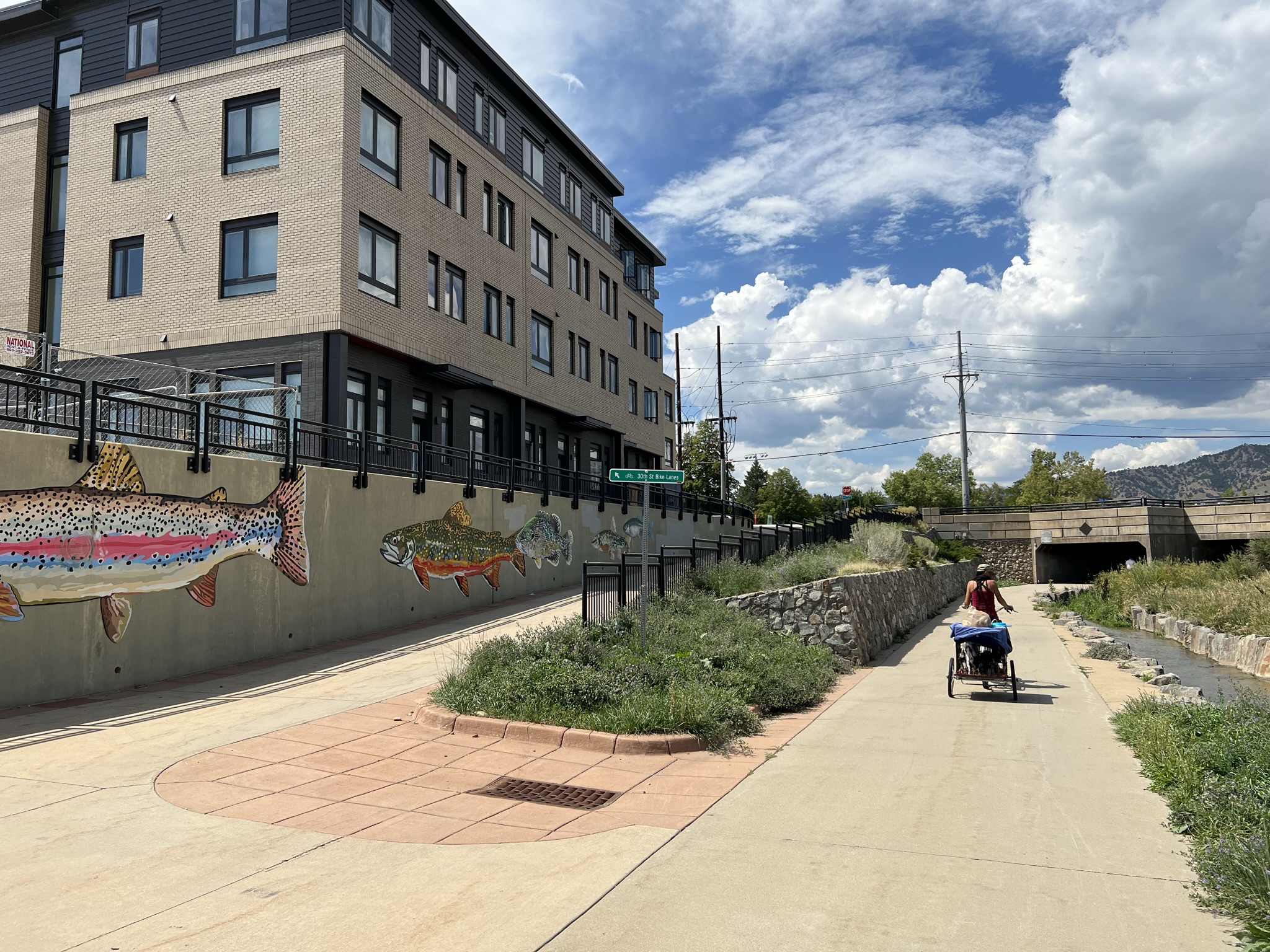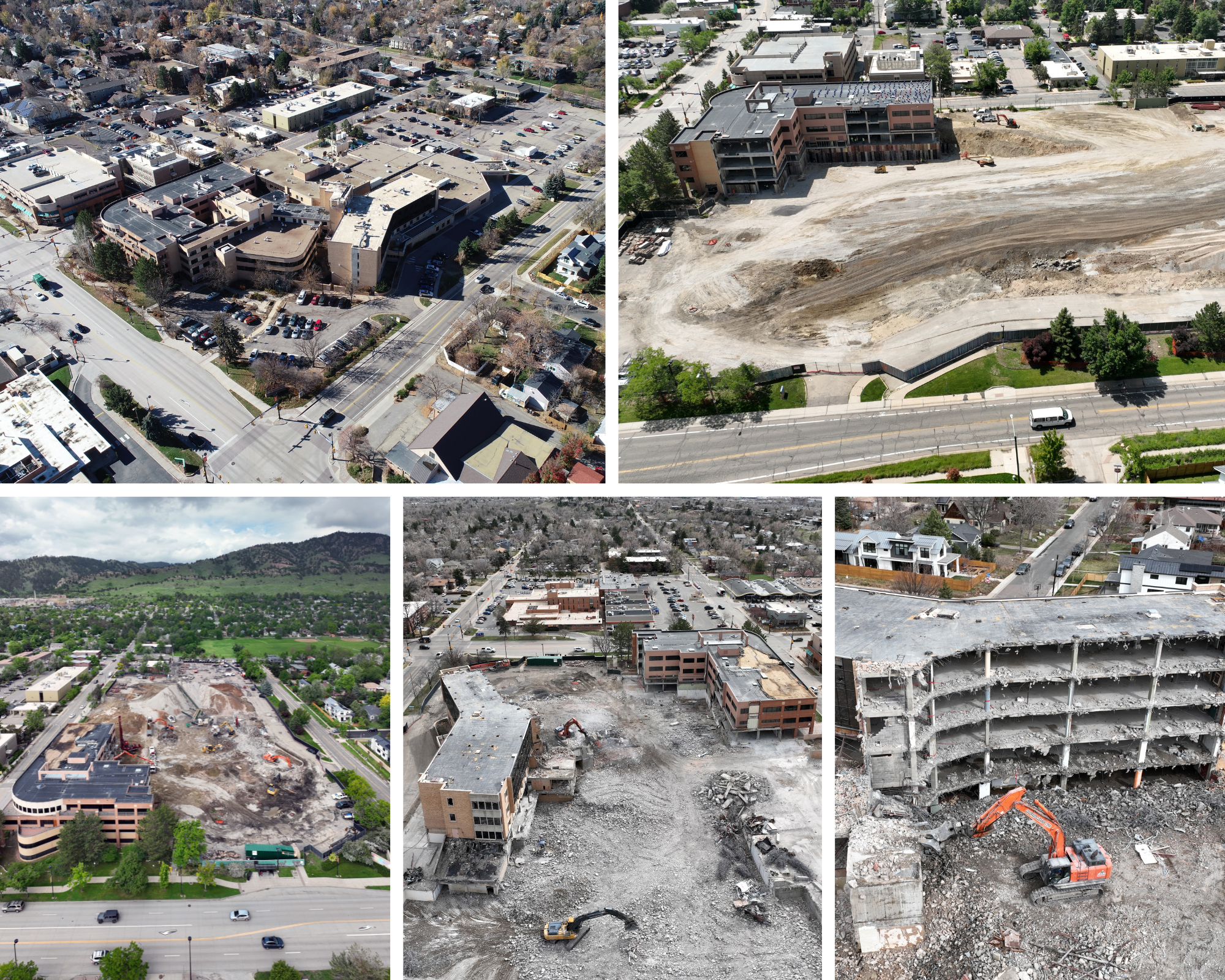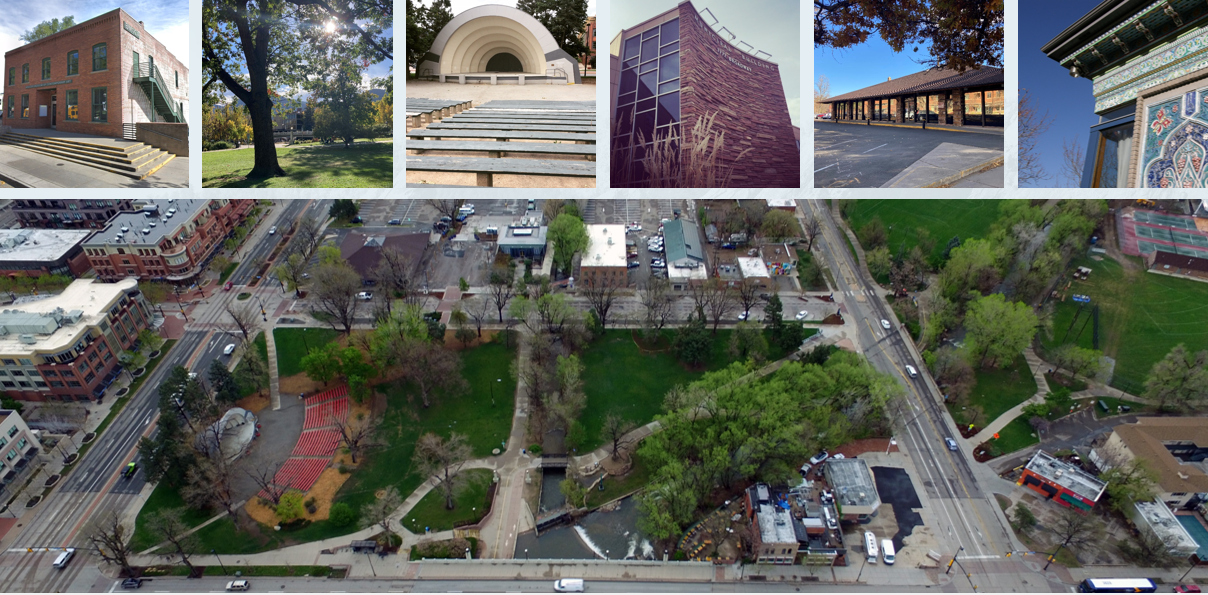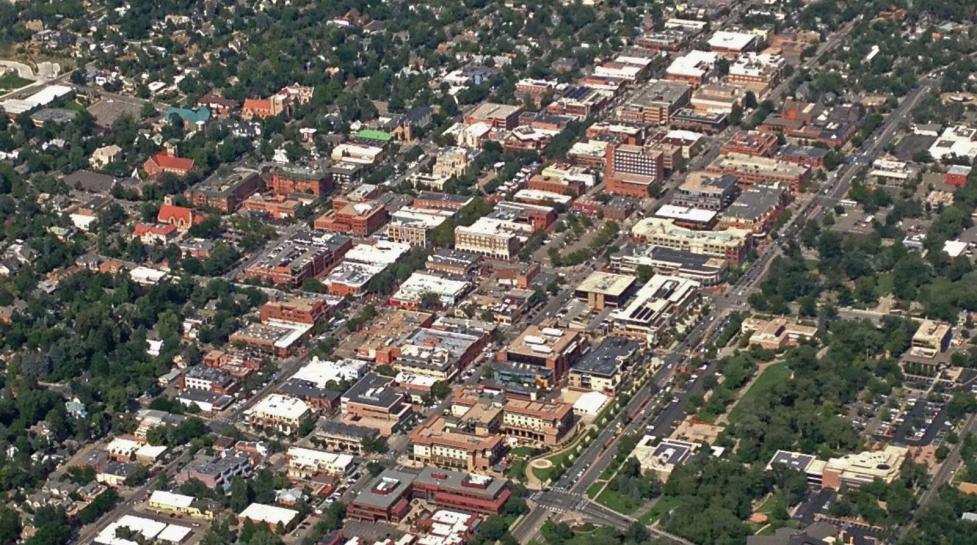Take a look at the work the city did in support of the built environment in 2023, and get a preview of projects coming in 2024.
Process Improvements
P&DS has expanded its service model to allow community members to interact with staff in several ways, including through Inquire Boulder, by calling 303-441-1880 or by visiting the Service Hub at 1101 Arapahoe Ave. This range of options allows community members to access detailed information, upload and manage active applications and schedule virtual or in-person meetings.
This year, the department filled several key vacancies and moved many of our applications online, which helped to shorten service delays caused, particularly in the areas of building permit review and plan processing.
We understand the importance of these efforts to your personal and business needs, and we welcome your feedback, which can be submitted on Inquire Boulder.
Boulder Junction Phase 2

Boulder Junction is a 160-acre area located in the geographic center of Boulder, between 30th Street, Pearl Street, Valmont Road and Foothills Parkway.
In 2023, City Council unanimously adopted amendments to guide this area’s future and better reflect the community's vision for the area, including:
- Revised transportation connections to make the area more walkable, provide better connectivity and improve access to existing bike and trail networks.
- Updates to guidelines on the area’s design, which include a diversity of building types, and more landscape and tree canopy.
- More public spaces, including informal gathering areas, plazas and linear greenways.
Sustainable Deconstruction and the Alpine-Balsam Project

The City of Boulder finished dismantling the former Boulder Community Health Hospital to make way for redevelopment on its Alpine-Balsam property.
This process, called sustainable deconstruction, allowed for reuse and recycling of almost 94% of the hospital’s building materials. Deconstruction is climate action with a big impact. Learn about sustainable deconstruction and how the city is finding new life for materials from the Alpine-Balsam site on the city's website.
Site Review Criteria Update
City Council approved an update to the Site Review criteria and concluded the Community Benefit project. The update helps address the economic, social and environmental objectives of the Boulder Valley Comprehensive Plan, determine additional design standards for projects requesting a height modification, identify ways further city goals and create more predictability.
Occupancy Reform
City Council approved an increase in the allowable occupancy home to five unrelated people citywide to add more affordable housing opportunities in the community.
The former number of unrelated people per home was three for lower density residential zoning districts, and four in most other areas of the city. The city does not regulate how many family members may occupy a dwelling unit. Learn more on the occupancy limits website.
Accessory Dwelling Units
An Accessory Dwelling Unit (ADU) is a second home with a separate kitchen, sleeping and bathroom, and is either attached or detached from the main home on a single-family lot.
In 2023, City Council updated ADU regulations to remove common barriers and streamline the approval process. Learn more about ADUs and check out our new video if you are considering building one.
Zoning for Affordable Housing
City Council adopted an ordinance to allow more housing units in some areas, enable smaller homes and encourage a greater diversity of housing types. This includes allowing more housing units in growth areas, such as along 28th Street, neighborhood centers and industrial areas, as well as allowing duplexes and triplexes in low density residential areas if they are consistent with current density limits. These changes are an effort to encourage more affordable housing in our community.
Use Table and Standards Project
City Council adopted the final ordinance of the Use Table and Standards project, which focuses on supporting walkable neighborhood centers.
This marks the conclusion of the Use Table and Standards Project which has been underway since 2018. The project includes several ordinances to clarify the use table and standards and better support a diversity of businesses and housing throughout the city.
What to look forward to in 2024
Area III Planning Reserve Study
The Area III-Planning Reserve is about 500 acres on the north side of Boulder where the city has the option to expand future urban development based on community needs that cannot be met within its existing area. This year, city staff will prepare a technical analysis of the feasibility and potential costs of extending urban services into this area. Learn more about the Area III Planning Reserve Urban Services Study.
Energy Conservation Code Update
The City of Boulder Energy Conservation Code sets minimum energy performance standards for newly constructed and renovated buildings in Boulder.
The code is updated on a three-year cycle, with its most recent revision being in 2020. The city’s current energy code is a more rigorous, local version developed by the International Code Council. With every code update, the city continues its path toward net-zero emissions for all building operations, an important milestone in meeting Boulder’s broader citywide target of Carbon Positive emissions by 2040.
The proposed 2024 updates include:
- All electric requirements for new construction and major renovations
- Updates to the electric vehicle infrastructure requirements
- Residential and commercial energy performance updates
- Additional conservation requirements that include options for embodied carbon
Learn more about the 2024 Energy Conservation Code Update.
Civic Area Historic District

The city is exploring a proposed historic district designation of Central Park and five surrounding city-owned landmarks. The designation process has provided an opportunity to tell a more complete history of the area.
Learn more about the history of the Civic Area through this interactive StoryMap.
Code Updates and Changes
P&DS Staff is currently working on code changes to streamline its approval processes, as well as simplify and clarify parts of the code.
A second phase of the Zoning for Affordable Housing project is also underway and is focused on exploring additional opportunities to allow more housing in specific zones if consistent with the Boulder Valley Comprehensive Plan.
The city is also monitoring a number of draft bills at the state level and how they will impact the Boulder community. These include bills related to accessory dwelling units, housing along transit corridors, potential zoning changes, occupancy and minimum parking requirements.
Get the Latest
There are a lot of exciting things coming in 2024. Sign up to receive the monthly Planning and Development Services Newsletter for project updates and engagement opportunities.
